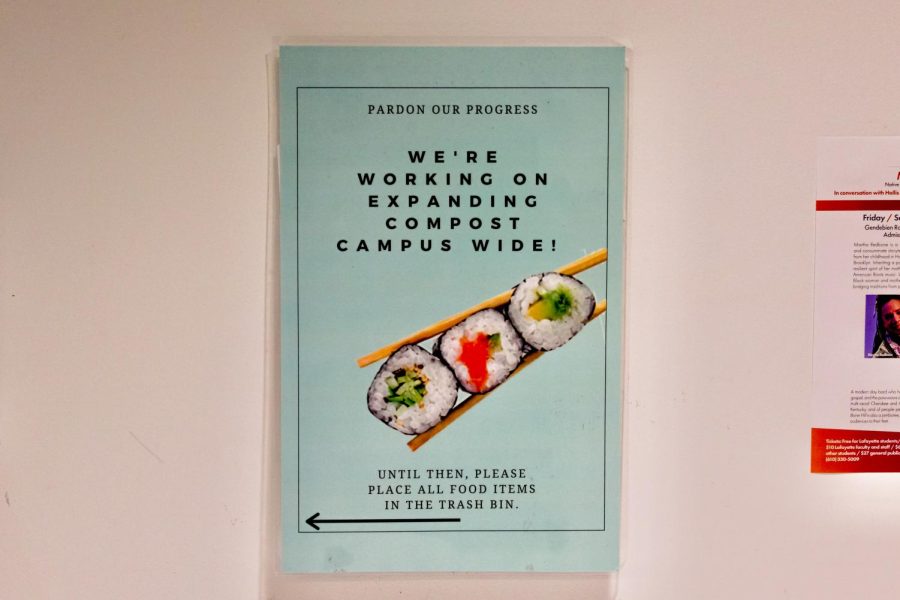The composting program pushed for by Student Government with a nearly unanimously approved resolution is running on schedule to begin in fall 2023. While Dining Services is fully prepared to implement the program, a composting device purchased by the college is yet to arrive.
“Composting is on hold until the new intermodal earth flow vessel arrives tentatively this summer,” general manager of Dining Services Christopher Brown wrote in an email. “We will reimplement composting [after its arrival].”
Climate action and circularity manager Melissa Adamson estimated in an email that the new vessel “will increase our collection capacity by 3 times minimum.”
The college has made progress in its goal of diverting 40 percent of its waste from landfills by 2024. This was outlined in the Climate Action 2.0 plan. The earth flow vessel it purchased will replace the aged Earth Tubs, which utilized both manual labor and electricity to break down food waste.
Dining Services has collaborated with the Office of Sustainability to identify means of diverting student waste to composting. Dining Services has been willing to train staff to provide non-contaminated organic materials for composting via the new vessel.
An alleged flaw of the college’s current Earth Tub-oriented composting program is its lack of scalability, as it can’t compost large amounts of food.
“Earth Tubs are not scalable and therefore it is likely that only about 12 percent … of the college’s food waste will be composted again,” Kaitlyn Hilley ’23, a representative on Student Government’s Sustainability Committee, wrote in an email. “The resolution passed by [the] Student Government in December strongly urged the Board of Trustees as well as the Lafayette Community to implement a pilot composting program that would be scalable.”
According to Adamson, “[the sustainability office is] meeting the resolution timeline, [and] we achieved a 23 percent diversion rate for the 2021-2022 year.”
The resolution, written by Hilley, was approved by Student Government by a wide margin. While the resolution received broad support, this does not mean that it will come to fruition.
“Faculty and the Board of Trustees are not necessarily required to listen to students or to act upon any resolutions that the student government passes,” Hilley wrote in an email. “A major issue with the Climate Action Plan and even the joint governance process is the lack of accountability on behalf of the Board of Trustees to actualize any of the resolutions proposed or the Climate Action Plan as a whole.”
The college is hosting a master planning meeting on Feb. 23 in Rockwell Integrated Science Center 104 from noon to 1 p.m. During the meeting, administrators and planners will determine how much of a priority sustainability is to the college.
“If students care about sustainability at all, as well as composting, they must come to this meeting and be ready to share their support for composting and other sustainability initiatives,” Kaitlyn Hilley ’23 wrote.


























































































































